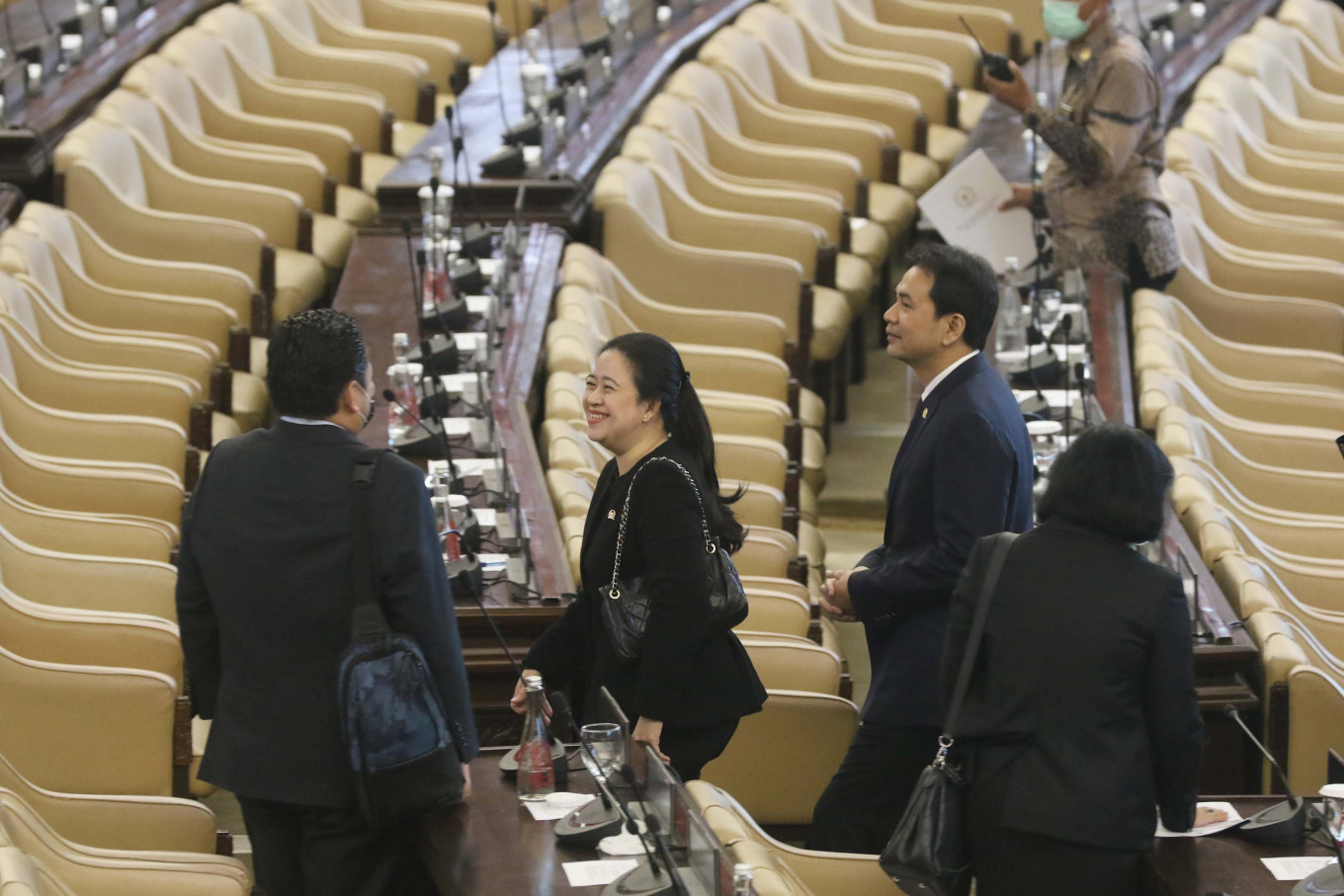Popular Reads
Top Results
Can't find what you're looking for?
View all search resultsPopular Reads
Top Results
Can't find what you're looking for?
View all search resultsHouse ready to support 2020 budget revisions to account for COVID-19
Macroeconomic assumptions in the state budget will be changed, including the economic growth target, which will be changed from 5.3 percent to between 4 and 5.1 percent. The rupiah is expected to hover around Rp 16,000 per US dollar this year from its initial projection of Rp 14,400 per US dollar.
Change text size
Gift Premium Articles
to Anyone
T
he House of Representatives stands ready to support the government to make the necessary changes to the 2020 state budget, including raising the budget deficit cap, as the number of COVID-19 cases in Indonesia continues to rise.
House Speaker Puan Maharani said COVID-19 had had a severe impact on the global economy, adding that the crisis would lead to significant changes in macroeconomic assumptions set in the 2020 state budget.
“The House is ready to support mitigation measures needed by the government through the state budget and [we will support] a government regulation in lieu of law [Perppu] to improve fiscal resiliency,” said Puan during the House’s plenary meeting in Jakarta on Monday.
Macroeconomic assumptions in the state budget would be changed, including the economic growth target, which will be changed from 5.3 percent to between 4 and 5.1 percent, she said. The rupiah is expected to hover around Rp 16,000 per US dollar this year from its initial projection of Rp 14,400 per US dollar, Puan added.
Read also: Expand deficit to 5%, cut taxes on rich in exchange for required COVID-19 donations: House
“We need fiscal intervention to strengthen spending in the state budget and government programs to anticipate the impact of the coronavirus outbreak on people's lives and the national economy,” Puan added.
The House Speaker urged the government, together with Bank Indonesia (BI) and the Financial Services Authority (OJK), to step up coordination efforts to integrate policies to support the national economy.
President Joko “Jokowi” Widodo has revealed that government officials and legislators are in talks to raise Indonesia’s budget deficit cap from the current 3 percent of gross domestic product (GDP), which would allow the state to borrow more money to fund its emergency response measures to the coronavirus pandemic.
The chairman of the House budget committee (Banggar), Said Abdullah, said on March 23 that the government should raise the ceiling from the current 3 percent to 5 percent.
Read also: Indonesia’s budget to fight COVID-19: What we know so far
According to multinational investment bank Morgan Stanley’s analysis, Indonesia’s budget deficit may reach between 2.7 and 3.5 percent this year, which would be the highest level in history.
Meanwhile, Bahana Sekuritas economist Satria Sambijantoro said the budget deficit would eventually hover at around 3.5 to 4 percent of GDP.
“Indonesia’s deficit cap of 3 percent of GDP, introduced in the aftermath of the 1997-1998 Asian financial crisis, has brought fiscal prudence and lowered the country’s credit risks,” Satria said in a research note.
“Thus, we expect the waiver to be only temporary, with the deficit cap back in place after risks from the COVID-19 outbreak subside.”
The government’s baseline scenario had been for Indonesia’s GDP to grow more than 4 percent this year, Finance Minister Sri Mulyani Indrawati said recently. Under the assumptions the pandemic will last for six months, that global trade will slump by 30 percent and the country goes into lockdown, economic growth could fall to between zero and 2.5 percent, she added.
Under a baseline scenario, Morgan Stanley expects Indonesia’s economy to grow 3.7 percent this year. However, under a bear case scenario, Indonesia’s economic growth is tipped to drop to just 2.8 percent this year.










